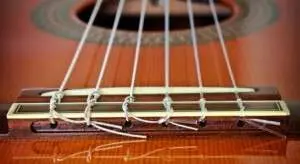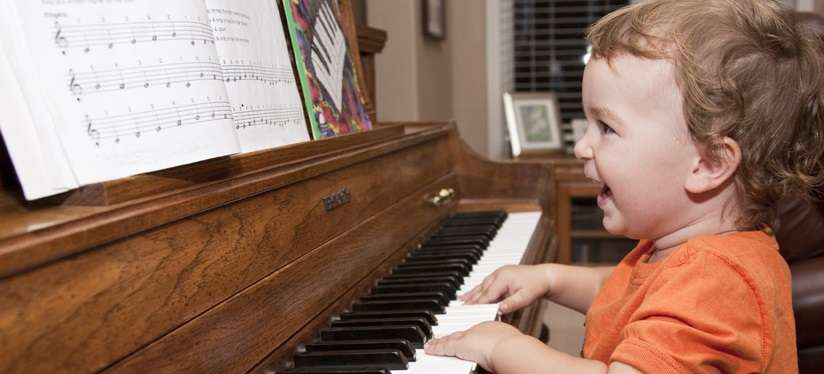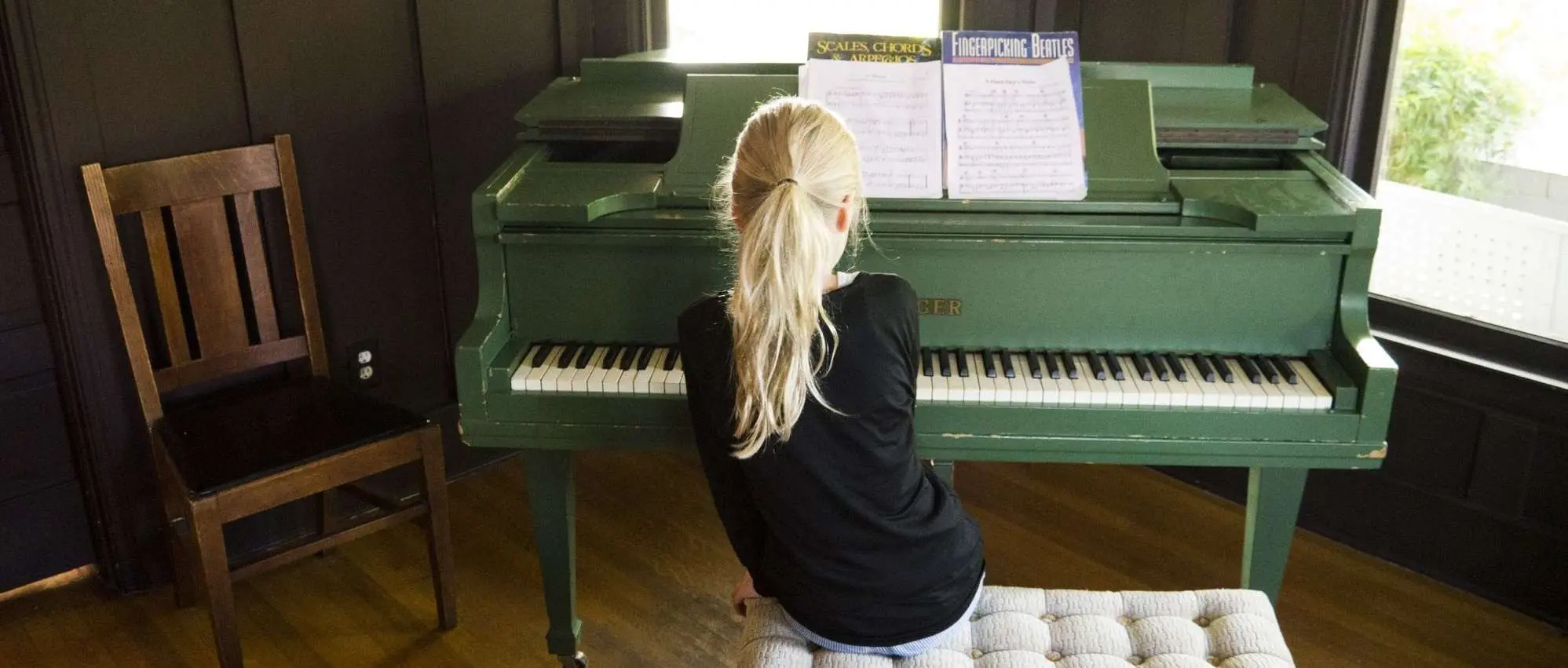
Why do you need an acoustic piano?
Contents
If you are in the mood for “serious music”, preparing a child for higher education and dreaming that one day he will surpass Denis Matsuev, you definitely need an acoustic piano. Not a single “number” can cope with these tasks.
Mechanics
An acoustic piano not only sounds different, it also communicates differently with the player. From a mechanical point of view, digital and acoustic pianos are built differently. “Digital” only imitates acoustics, but does not reproduce it exactly. When teaching for “general development”, this does not play a big role. But for professional use of the instrument, it is important to work out the technique of hands – efforts, pressing, blows – on an acoustic instrument. And to hear how different movements create the corresponding sound: strong, weak, bright, gentle, jerky, smooth – in a word, “alive”.

When learning to play an acoustic piano, you don’t have to retrain your child to hit the keys with all his might or, conversely, to stroke them too gently. Such disadvantages arise if a young pianist trains on a digital piano, where the sound strength does not change from the force of pressing the key.
Sound
Imagine: when you press a key on an acoustic piano, the hammer hits a string that is right in front of you, stretched with a certain force, resonates with a certain frequency – and right here and now this sound is born, unique, incomparable. Weakly hit, hard, soft, smooth, gentle – each time a new sound will be born!
What about an electronic piano? When a key is pressed, electrical impulses cause the previously recorded sample to sound. Even if it’s good, it’s just a recording of a sound that was once played. So that it does not sound completely clumsy, but reacts to the force of pressing, the sound is recorded in layers. In inexpensive tools – from 3 to 5 layers, in very expensive ones – several dozen. But in an acoustic piano, there are billions of such layers!
We are used to the fact that in nature there is nothing absolutely the same: everything moves, changes, lives. So it is with music, the most living art of all! You will listen to the “canned”, the same sound all the time, sooner or later it will get bored or cause a protest. That is why you can sit with an acoustic instrument for hours, and sooner or later you will want to run away from a digital one.
overtones
The string oscillates along with the soundboard , but there are other strings nearby that also oscillate harmoniously with the first string. This is how overtones are created. Overtone – an additional tone that gives the main a special shade, timbre . When a piece of music is played, each string does not sound on its own, but together with others that resonate with it. You can hear it for yourself – just listen. You can even hear how the whole body of the instrument “sings”.
The latest digital pianos have simulated overtones, even simulated keystrokes, but this is just a computer program, not a live sound. Add to all of the above cheap speakers and the lack of a subwoofer for low frequencies. And you will understand what you are losing when buying a digital piano.
The video will help you compare the sound of a digital and acoustic piano:
If what is written here is more important to you than price, convenience and peace of mind of your neighbors, then your choice is an acoustic piano. If not, then read our article on digital pianos .
Choosing between digital and acoustic is half the battle, now we need to decide which piano we will take: a used piano from our hands, a new piano from a store or a restored “dinosaur”. Each category has its pros, cons and pitfalls, I suggest getting to know them in these articles:
1. “How to choose a used acoustic piano?”

2. “How to choose a new acoustic piano?”


Pianists, who are quite serious, work out their technique only on the piano: it will give odds to any piano in terms of sound and mechanics :
3. “How to choose an acoustic grand piano?”







